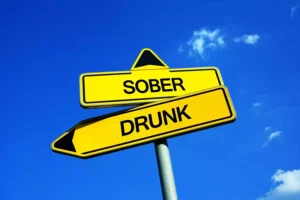Alcohol Use and Your Health Alcohol Use
November 10, 2021

You might not recognize how much you drink or how many problems in your life are related to alcohol use. Listen to relatives, friends or co-workers when they ask you to examine your drinking habits or to seek help. Consider talking with someone who has had a problem with drinking but has stopped. It is a regular practice to give small amounts of beer to race horses in Ireland. Alcohol poisoning happens when you drink too much alcohol too fast. If you suspect someone has alcohol poisoning, always call 911.
Risk Factors for Alcohol Poisoning
Everything from your age to what you ate earlier in the day can have an impact. In the Gaudiya Vaishnavism branch of Hinduism, one of the four regulative principles forbids the taking of intoxicants, including alcohol. Use of alcohol poisoning this website and any information contained herein is governed by the Healthgrades User Agreement. The content on Healthgrades does not provide medical advice. Always consult a medical provider for diagnosis and treatment.
Here’s What Alcohol Poisoning Can Do to Your Body
A mixed drink or cocktail could have more than one serving of alcohol in it. In every U.S. state, it is illegal to drive with a BAC of over 0.08%. A person who drives with a higher BAC is at risk of arrest. Thanks to generous benefactors, your gift today can have 5X the impact to advance AI innovation at Mayo Clinic.

Fatal blood levels of alcohol
Emergency medical staff will take steps to ensure a person’s medical stability and safety to help them recover and survive. People who binge drink have a higher risk of experiencing alcohol poisoning. Binge drinking is defined as the consumption of five or more alcoholic drinks (for men) or four or more drinks (for women) within two hours. If you’re with someone who might have drunk too much, call 911 right away.
Risk factors
- These functions include breathing, heart rate, body temperature, and gag reflex.
- Both young people and adults can experience alcohol poisoning.
- Binge drinking refers to a pattern of drinking that brings BAC to 0.08% or higher in a short period.
- People in this stage of intoxication are very likely to forget things happening around or to them.
- You might consider sticking with one drink or abstaining from alcohol altogether.
- As BAC increases, so do alcohol’s effects on a person’s body and motor functions.
At this stage, a person no longer responds to the things happening around or to them. If you survive an overdose without these complications, your long-term outlook https://ecosoberhouse.com/ will be very good. Don’t assume you can sleep it off or that you’ll be OK in the morning. If you can’t sit up, lie on your side to prevent choking on your vomit.

Bear in mind that the drink you’re holding might be larger than a standard drink. As a general rule, one standard drink will increase your BAC by 0.02 percent. So, while it might only take four drinks for you to be legally intoxicated, it’d take quite a bit more to kill you. The effects of alcohol are felt a little differently from person to person as a number of factors influence the amount of alcohol each person can withstand.
Signs of alcohol overdose

- Their motor responses and gag reflexes are nonfunctional, and their body temperature drops.
- An intervention from loved ones can help some people recognize and accept that they need professional help.
- If you experience an overdose, your doctor will ask you about your drinking habits and health history.
- If you see signs of alcohol poisoning, such as throwing up, seizures, slow breathing, or severe confusion, don’t hesitate to call 911.
Support with drinking

